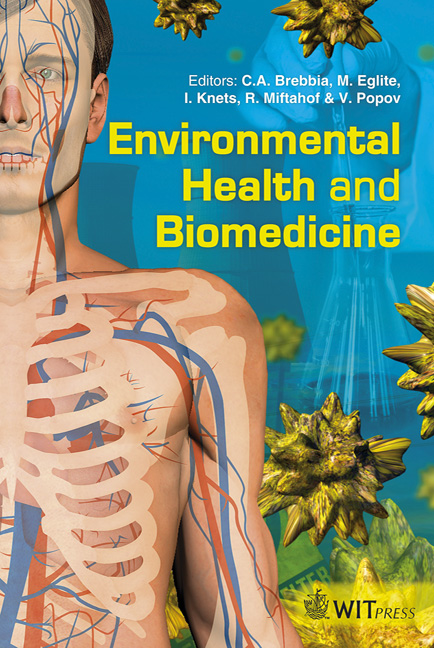Some Aspects Of Reproductive Health And Metabolic Disturbances In Pregnant Women And Their Newborn In Ecologically Injurious Conditions Of An Industrial City In The Urals
Price
Free (open access)
Transaction
Volume
15
Pages
10
Page Range
267 - 276
Published
2011
Size
3,440 kb
Paper DOI
10.2495/EHR110241
Copyright
WIT Press
Author(s)
L. A. Kovalchuk, A. E. Tarkhanova & A. A. Tarkhanov
Abstract
Medico-social aspects of the reproductive health of women are actual during the last decade in connection with the critical demographic tendency in Russia. Women of Ekaterinburg have disturbed reproductive functions and pregnancy complications (hestoses, danger of pregnancy break) Up to 80% of inspected women had somatic pathology. The leading among diseases are anemia, chronic infections inflammatory diseases, kidney and endocrine diseases and various forms of mastopathy. Therefore, health protection, especially of women and newborn is of special importance in ecologically unfavourable regions, including the Urals. Сonsidering the fact that technogenic pollution consequences instantly dangerously affect the health of a mother and a child, we investigated the \“mother-placenta-fetus” biological system. In the blood serum and placenta tissue of all inspected pregnant women in Ekaterinburg concentration of trace elements (Cu, Zn, Cd, Pb, Са, Cr, Ni (p<0,05) were higher compared with the data for other regions. The deficiency of essential trace elements (Cu, Fe, Zn, Mg, Ca) and accumulation of toxic Cd and Pb in the umbilical cord blood were the reason for the intrauterine sufferings of a fetus responsible for the low body mass at birth,Keywords
reproductive health, pregnant women, newborn, blood serum, placenta, trace elements





